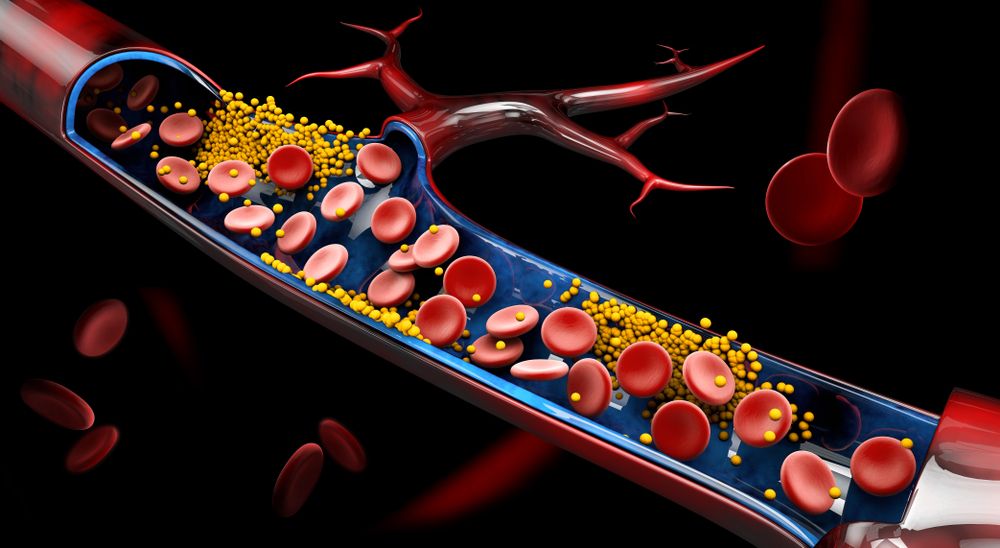
In a Phase 2 clinical trial, researchers at the Mount Sinai School of Medicine found that a drug called evinacumab was able to halve cholesterol levels in patients with high cholesterol.
A monoclonal antibody to lower LDL levels
Although cholesterol is an essential component of cells, a certain type known as low density lipoprotein (LDL) but often described as ” bad »Cholesterol, can cause health problems when found in too high concentrations in the blood. This state, called hypercholesterolemia, promotes the occurrence of heart attacks, strokes and other cardiovascular problems.
At present, the most effective treatment is shown to be triple therapy including high intensity statins, an inhibitor targeting a protein in the liver called PCSK9 and a substance reducing the amount of cholesterol absorbed by the small intestine. Unfortunately, this is insufficient for many patients with an inherited form of the disease known as heterozygous familial hypercholesterolaemia (HFC).
Unlike existing compounds targeting a receptor gene LDL, theevinacumab uses a different mechanism to regulate cholesterol levels. ” It is a fully human monoclonal antibody that inhibits angiopoietin like protein 3 (ANGPLT3) and lowers LDL cholesterol through an LDL receptor independent pathway. “, Explain Robert rosenson, principal investigator of the trial. ” Genetic studies have shown that people who lack or have low levels of ANGPTL3 have lifelong low LDL cholesterol levels and rarely experience atherosclerotic cardiovascular disease.. “

Impressive results
Detailed in the New England Journal of Medicine, the double-blind, placebo-controlled phase 2 clinical trial of evinacumab involved 272 patients with hypercholesterolemia. The drug and the placebo were administered either subcutaneously or intravenously at different doses and intervals.
After 16 weeks, participants who received weekly subcutaneous doses of 450 mg of evinacumab had low cholesterol levels. LDL 56% lower than in the placebo group. The group who received 300 mg per week saw their level drop by 52.9%, while the subjects who received 300 mg every two weeks saw their level drop by 38.5%.
Groups that received intravenous treatment also showed good results. The one who received 15 mg of evinacumab per kilogram of body weight had a cholesterol level 50.5% lower than that of the placebo group, while those who received 5 mg per kilogram saw their level drop by 24.2 %.
” Our study shows that subcutaneous or intravenous administration of evinacumab can have a significant impact on LDL cholesterol “, highlighted Rosenson. ” If approved for use in this setting, evinacumab could potentially provide cardiologists with a major additional therapeutic pathway to help patients with FNH reach or approach their cholesterol reduction goal.. ”
“This compound is currently under regulatory review in the United States and Europe”
Evinacumab also appears to be well tolerated. If one of the subjects experienced difficulty breathing and another suffered a mild anaphylactic reaction, their condition improved when they stopped taking the medicine. While the two deaths recorded during the trial were linked to pre-existing conditions.
” This compound is currently under regulatory review in the United States and Europe as an adjunct to other lipid lowering therapies in patients with homozygous familial hypercholesterolaemia, another form of familial hypercholesterolemia. », Concludes the researcher.
